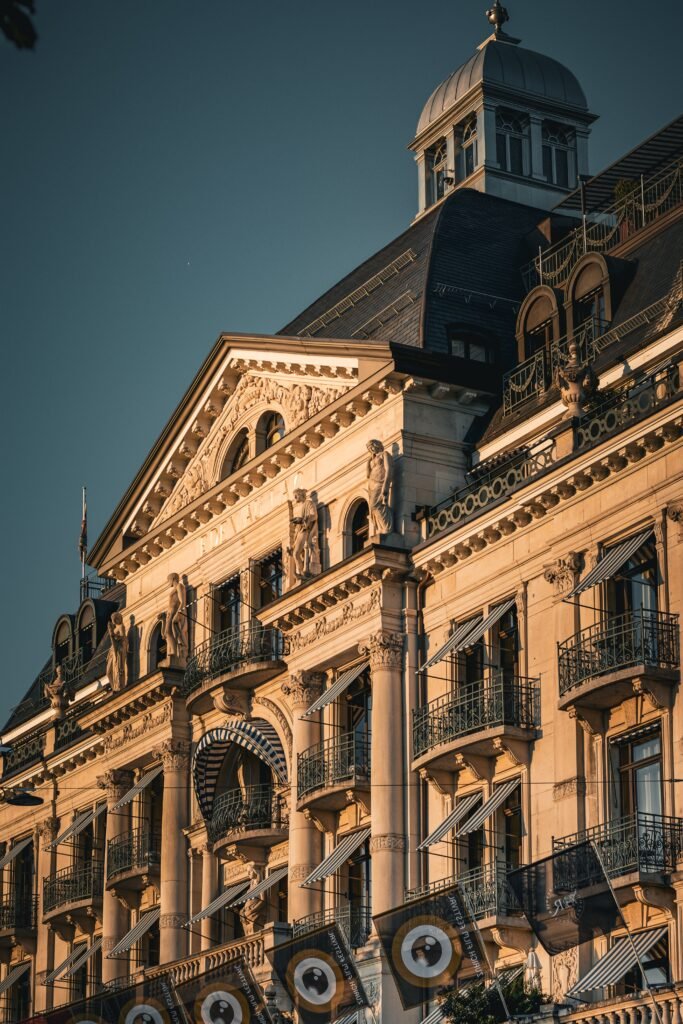Imagine checking into a luxurious hotel room, feeling excited to unwind and relax. As you settle in, the question might cross your mind: Are guests allowed in a hotel room? Well, the answer might surprise you. Whether you’re planning to have a friend visit or pondering the possibility of throwing a small celebration, this article will clarify the guidelines and policies surrounding guests in hotel rooms. Get ready to unlock the secrets behind inviting guests into your temporary home away from home.
Are Guests Allowed in a Hotel Room?
As a hotel guest, you may wonder about the policies and guidelines regarding guests in your hotel room. After all, hotels have their own set of regulations to ensure the comfort and safety of all their guests. In this article, we will explore the various aspects of hotel policies regarding guests, including the types of guests allowed, restrictions on guest access, additional charges for guests, and security considerations.
Hotel Policies Regarding Guests
When it comes to hotel policies regarding guests, each establishment may have slightly different guidelines. However, there are some common aspects that are typically addressed. Let’s take a closer look at these areas.
General Information
Before delving into the specific policies, it’s important to become familiar with the general information regarding guests in hotel rooms. Hotels generally aim to provide a welcoming and accommodating environment for their guests, which includes allowing visitors. However, there are specific rules and regulations in place to ensure the comfort and security of all guests.
Check-In Process
During the check-in process, you will typically be required to provide your identification and reservation details. It is during this time that you may also inform the hotel staff about any potential guests you plan to have during your stay.
Check-Out Process
When checking out of the hotel, it’s important to follow the established procedures and inform the staff of any additional guests who may have stayed in your room during your visit. This helps the hotel maintain accurate records and ensures a smooth check-out experience for everyone involved.
Guest Identification
Both you as the registered guest and any additional guests in your room may be required to provide identification upon arrival. This is for security purposes and ensures that only authorized individuals have access to hotel facilities.
Reservation Details
Your reservation details, including the number of guests initially included in your booking, may influence the hotel’s policies regarding additional guests. It’s important to clarify any specific rules or charges related to guests when making your reservation.
Guest Registration
In order to maintain accurate records and adhere to safety regulations, hotels typically require the registration of all guests staying in the room. This information helps the hotel staff monitor occupancy levels and ensure the well-being of all guests.

Types of Guests
In terms of hotel policies, guests can generally be categorized into two types: registered guests and additional guests.
Registered Guests
Registered guests are the individuals who have made the booking and are officially checked into the room. These guests are typically included in the original reservation and their identification and reservation details are provided during the check-in process.
Additional Guests
Additional guests, on the other hand, are individuals who are not initially included in the reservation but who will be staying in the room with the registered guest. It’s important to inform the hotel about any additional guests in advance to ensure a smooth check-in process and to avoid any potential issues with occupancy limits or charges.
Guests for Overnight Stay
Guests who stay in a hotel room overnight are subject to specific policies and regulations. Let’s explore some of the key aspects related to overnight guests.
Definition
For the purposes of hotel policies, guests staying in a hotel room overnight are generally considered to be those who spend the majority of the night in the room.
Standard Policy
The standard policy for overnight guests varies between hotels. Some hotels may not allow any additional overnight guests, while others may have a limit on the number of guests allowed per room. It is important to familiarize yourself with the specific policies of your chosen hotel.
Identification Requirements
Just like registered guests, overnight guests may be required to provide identification at check-in. This helps ensure the safety and security of all guests and allows the hotel staff to maintain accurate records.
Charges and Fees
Hotels may charge additional fees for overnight guests, especially if they exceed the standard occupancy limit for the room. It’s important to inquire about any potential charges before inviting overnight guests to your room.
Providing Extra Bedding
If your hotel room does not already have sufficient bedding for additional overnight guests, you may need to request extra bedding from the hotel. Some hotels offer rollaway beds or sofa beds to accommodate additional guests.
Hotel Amenities Access
When inviting overnight guests to your room, it’s important to consider whether they will have access to the hotel amenities such as the fitness center, swimming pool, or breakfast area. Some hotels may restrict certain amenities to registered guests only, so it’s best to clarify this with the hotel staff.

Guests for Day Use
In addition to overnight guests, hotels may also allow guests for day use. Let’s explore what this means and what policies may be in place for day use guests.
Definition
Day use guests are individuals who utilize a hotel room for a shorter duration during the daytime, typically without staying overnight.
Day Use Policy
Hotels often have specific policies in place for day use guests. This may include limitations on the number of hours a room can be reserved for day use or restrictions on the availability of certain amenities.
Duration and Time Restrictions
The duration and time restrictions for day use guests vary between hotels. Some hotels may offer day use reservations for a few hours, while others may allow guests to reserve a room for an entire day. It’s important to check with the hotel for their specific policy on day use.
Charges and Fees
Hotels may charge different rates for day use guests compared to overnight guests. The charges may be based on the duration of the stay or a flat fee for day use. It’s crucial to inquire about any additional charges before making a reservation for day use.
Access to Hotel Facilities
Similar to overnight guests, day use guests may have access to certain hotel facilities and amenities. However, it’s important to clarify with the hotel staff which amenities are available for day use guests to avoid any misunderstandings or disappointments.
Additional Charges for Guests
When it comes to inviting guests to your hotel room, it’s important to be aware of any additional charges that may apply. Let’s take a closer look at some of the common charges and fees associated with guests.
Standard Policies
Hotels typically have standard policies in place regarding additional charges for guests. These policies may dictate the maximum number of guests allowed in a room, any associated fees, and any restrictions on access to hotel amenities.
Extra Persons Charges
If the number of guests in your room exceeds the standard occupancy limit, the hotel may charge extra person fees for each additional guest. It’s crucial to inquire about these charges before inviting guests to your room to avoid any surprises at check-out.
Additional Bed Charges
In the event that your hotel room does not have sufficient bedding for additional guests, you may need to request an extra bed from the hotel. Some hotels offer rollaway beds or sofa beds for this purpose. However, please note that there may be additional charges for the provision of extra beds.
Access to Hotel Services
While some hotel services may be available to all guests, such as Wi-Fi or basic concierge services, there may be additional charges for certain services or amenities. Before inviting guests to your room, it’s important to clarify with the hotel staff which services are included and which may incur an additional cost.

Maximum Occupancy of a Hotel Room
Hotels have specific regulations in place regarding the maximum occupancy of each room. This helps ensure the safety, comfort, and compliance with fire regulations. Let’s explore this aspect further.
Definition
The maximum occupancy of a hotel room refers to the maximum number of guests allowed to stay in the room. This limit is determined by factors such as the size of the room, fire safety regulations, and the hotel’s policies.
Enforced Occupancy Limits
Hotels are required to enforce the occupancy limits set for each room. These limits are put in place to ensure the safety and well-being of all guests and to comply with fire regulations. It’s crucial to adhere to the specified occupancy limits to avoid any potential risks or penalties.
Safety and Fire Regulations
The maximum occupancy limits of hotel rooms are closely tied to safety and fire regulations. These limits are designed to ensure that in the event of an emergency, guests can safely exit the building and that fire and safety systems are able to handle the number of occupants in the room.
Exceptions and Accommodations
In certain situations, hotels may make exceptions or accommodations for guests who require additional space or have specific needs. However, it’s important to communicate these requirements with the hotel in advance to ensure that they can make the necessary arrangements while still adhering to safety regulations.
Restrictions on Guest Access
While hotels generally welcome guests, there may be areas or facilities within the hotel that are restricted to registered guests only. Let’s explore this aspect further.
Restricted Areas
Hotels may have specific areas or facilities that are restricted to registered guests only. This can include fitness centers, swimming pools, business centers, or executive lounges. It’s important to respect these restrictions and refrain from accessing areas designated exclusively for registered guests.
Special Access Policy
In certain cases, hotels may have a special access policy for guests who are not registered at the hotel but who wish to utilize specific facilities such as a spa or restaurant. It’s important to inquire about these policies and any additional fees that may apply.
Prohibited Activities
Hotels have rules and regulations in place to ensure the comfort, safety, and well-being of all guests. This may include prohibiting certain activities within the hotel premises, such as smoking, excessive noise, or illegal activities. It’s crucial to adhere to these guidelines to maintain a pleasant environment for everyone.
Noise and Disturbance Concerns
Hotels strive to provide a peaceful and relaxing environment for their guests. It’s important to be considerate of other guests and to avoid excessive noise or disturbances, especially during quiet hours. This helps create a positive experience for all visitors.
Security Considerations
The safety and security of guests is of utmost importance to hotels. Let’s explore some of the security considerations that hotels have in place to ensure a comfortable and secure environment.
Guest Safety
Hotels have measures in place to ensure the safety of all guests. This can include security patrols, surveillance cameras, and emergency response plans. It’s crucial for guests to familiarize themselves with the emergency procedures and to report any suspicious activities or concerns to hotel staff.
Privacy and Security Measures
Hotels take privacy and security seriously and have protocols in place to protect guests’ personal information and belongings. It’s important to adhere to the hotel’s policies regarding key card usage, safe deposit boxes, and general security measures.
Key Card System
Hotels often utilize key card systems to control access to rooms and other areas within the hotel. It’s important to keep your key card secure and not share it with unauthorized individuals. Additionally, ensure that the door to your room is properly closed and locked when leaving or entering.
Monitoring and Surveillance
To enhance security and maintain a safe environment, hotels may have surveillance cameras at various locations throughout the property. This helps deter potential security threats and enables the hotel staff to monitor and respond to any incidents promptly.
Informing the Hotel about Guest Visits
To ensure a smooth check-in process and compliance with hotel policies, it’s important to inform the hotel about any planned guest visits in advance. Let’s discuss this aspect further.
Identification and Registration
When you inform the hotel about a guest visit, they may require the identification and registration details of the guest. This helps maintain accurate records and ensures the safety and security of both the registered guest and the additional visitor.
Visitor Access Period
Hotels may have specific time restrictions for visitor access to rooms. It’s important to inquire about these restrictions and to communicate the expected duration of the visit to the hotel staff.
Guest Responsibility
As the registered guest, it is your responsibility to ensure that your guest adheres to hotel policies and guidelines. This includes being respectful of the property, following noise regulations, and not causing any disturbances.
Visitor Policy Enforcement
Hotels enforce their visitor policies to ensure the comfort and security of all guests. It’s important to respect these policies and follow the instructions provided by hotel staff. Failure to comply with these policies may result in penalties or eviction from the property.
In conclusion, most hotels do allow guests in hotel rooms, provided that these visitors adhere to the established policies and guidelines. It’s important to familiarize yourself with the specific policies of your chosen hotel, notify the hotel about any intended guest visits, and ensure that your guests follow all hotel rules and regulations. By doing so, you can create an enjoyable and comfortable experience for yourself and your guests during your hotel stay.







